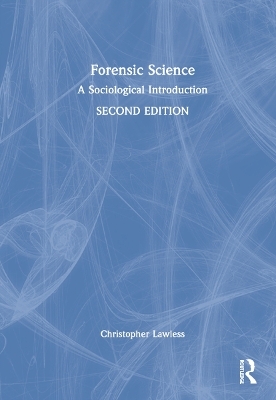
Forensic Science
Routledge (Verlag)
978-0-367-64806-0 (ISBN)
• The integration of science into police work and criminal investigation
• The relationship between law and science
• Ethical and social issues raised by new forensic technology including DNA analysis
• Media portrayals of forensic science
• Forensic policy and the international agenda for forensic science
This new edition has been fully updated, particularly with regard to new technology in relation to the various new forms of DNA technology and facial recognition.
Updates and additions include:
• Facial recognition technology
• Digital forensics and its use in policing
• Algorithms (such as probabilistic genotyping)
• Genealogical searching
• Phenotyping
This new edition also reviews and critically appraises recent scholarship in the field, and new international case studies have been introduced, providing readers with an international comparative perspective. Engaging with sociological literature to make arguments about the ways in which forensic science is socially constituted and shapes justice, Forensic Science provides an excellent introduction to students about the location of forensic science and the ways it fits within the criminal justice system, as well as systems of professionalisation and ethics. It is important and compelling reading for students taking a range of courses, including criminal investigation, policing, forensic science, and the sociology of science and technology.
Christopher Lawless is associate professor in the Department of Sociology at Durham University. He specializes in the application of science studies to legal and regulatory issues, with specific research interests focusing on forensic science, criminal investigation and critical infrastructures. Chris originally trained as an analytical biochemist, gaining a BSc in biochemistry and microbiology (Sheffield) and an MRes in instrumentation systems (UCL) and made the transition to the social sciences via a PhD at Durham University, focusing on the sociology of forensic scientific reasoning.
Chapter 1: Forensic Studies: From Crime Scene to Court and Beyond
Chapter 2: Forensics in the Media
Chapter 3: Shaping forensic science as discipline and profession
Chapter 4: Forensic and Biometric Policy in the UK
Chapter 5: Reconstructing a reconstructive science
Chapter 6: Law–science interactions and new technology
Chapter 7: Forensic DNA Technology: Social and Ethical Issues
Chapter 8: Facial Recognition
Chapter 9: Digital Forensics
Chapter 10: Conclusion: Imagining and Re-imagining Forensic and Biometric Technologies
| Erscheinungsdatum | 08.03.2022 |
|---|---|
| Zusatzinfo | 2 Tables, black and white |
| Verlagsort | London |
| Sprache | englisch |
| Maße | 178 x 254 mm |
| Gewicht | 740 g |
| Themenwelt | Recht / Steuern ► Strafrecht ► Kriminologie |
| Sozialwissenschaften ► Soziologie | |
| ISBN-10 | 0-367-64806-7 / 0367648067 |
| ISBN-13 | 978-0-367-64806-0 / 9780367648060 |
| Zustand | Neuware |
| Haben Sie eine Frage zum Produkt? |
aus dem Bereich


